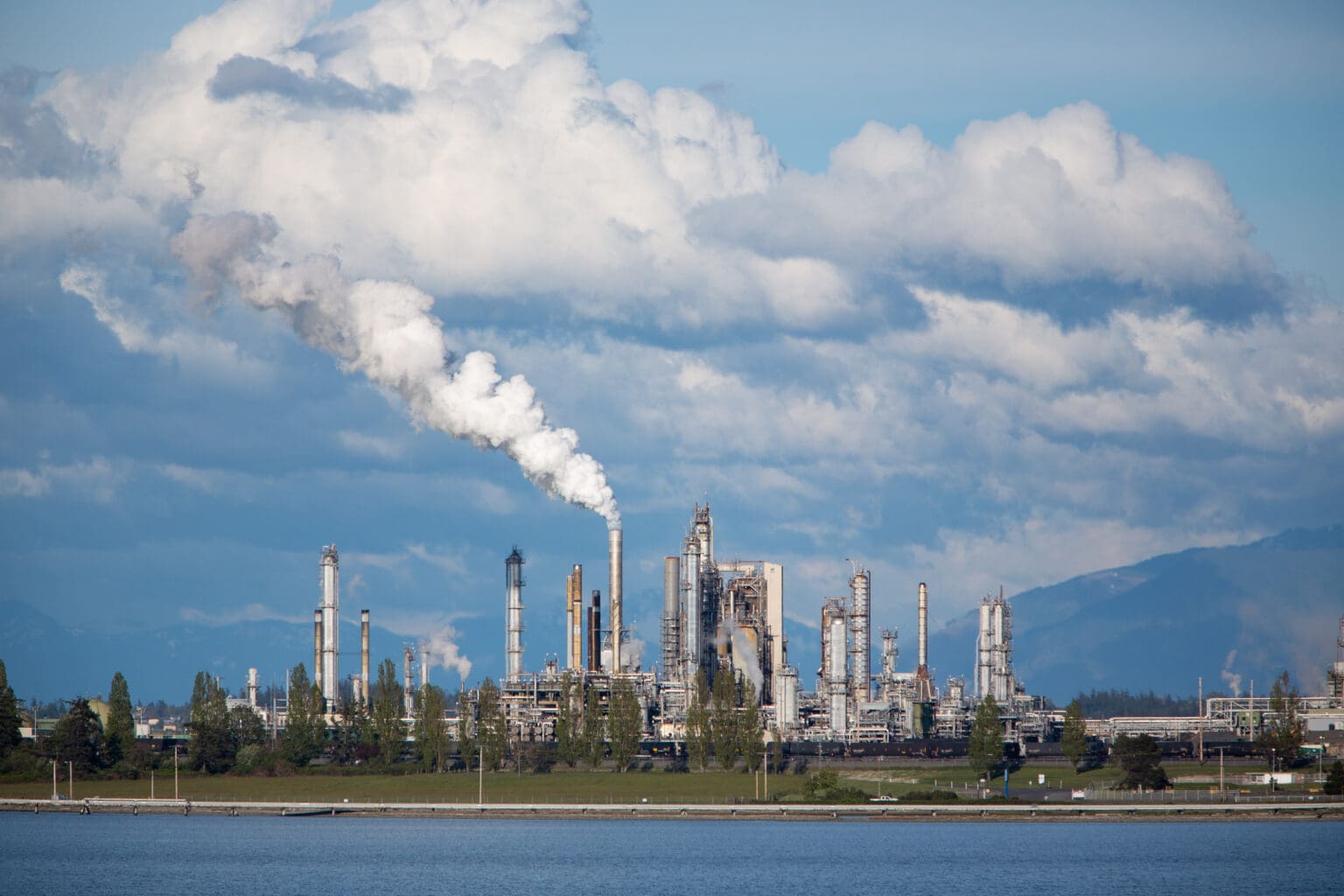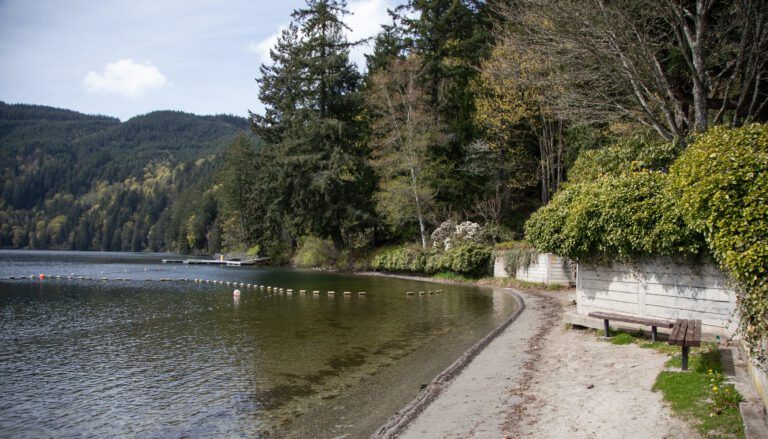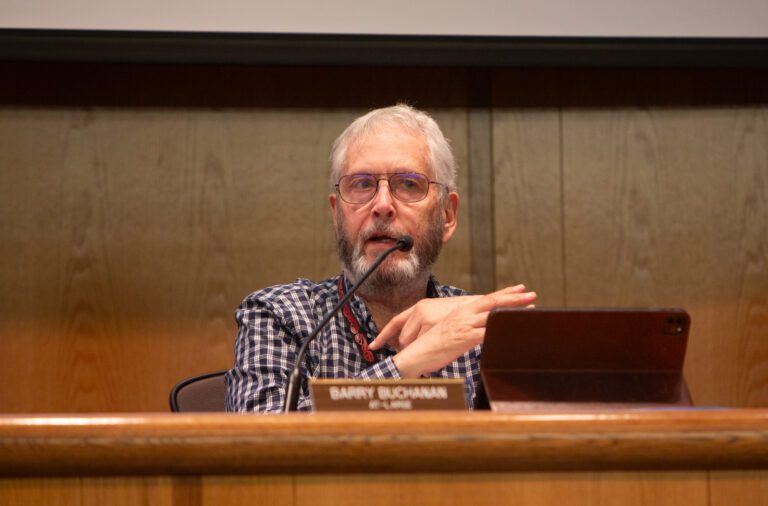Increased safety regulations for employees working with “highly hazardous chemicals” in oil refineries are on the table as environmental activists and union members push for stricter petroleum operation rules.
Regulations proposed by the Washington State Department of Labor & Industries in June would update the 1992 “Process Safety Management” (PSM) guidelines for thousands of workers at Washington’s five refineries, including the BP and Phillips 66 refineries at Cherry Point.
The plan increases safety checks to minimize “the consequences of catastrophic releases of toxic, reactive, flammable, or explosive chemicals,” according to the L&I proposal.
Work on the new code proposal launched after an April 2010 explosion at the Tesoro Anacortes refinery, where seven people were killed in a fiery explosion — a likely preventable event, the U.S. Chemical Safety and Hazard Investigation Board (CSB) found in its investigation of the accident.
Other incidents at refineries have resulted in environmental degradation and oil spills, harming local fish populations and communities exposed to the toxic chemicals.
“These incidents, they’re not contained by the fences of a refinery,” Jim Irby, an organizer for the environmental health nonprofit Coming Clean, said during a Bellingham hearing regarding the proposal Thursday, Aug. 10. “They do impact communities and ecosystems and everyone’s health and safety.”
The industry, state Sen. Liz Lovelett (D-Anacortes) said, is “inherently risky,” pointing to a March Burlington Northern Santa Fe train derailment and subsequent diesel spill on the Swinomish Indian Tribal Community reservation. Lovelett’s father, too, worked at the Tesoro refinery at the time of the 2010 explosion.
“The danger that my family felt in sending my dad back to the refinery after that explosion — words can’t begin to tread on what that feels like,” Lovelett said. “Knowing that that was preventable and basically being done as a cost-control measure is unacceptable.”
The proposed regulations — which include mandated hazard analyses, increased employee training requirements, machine “integrity” checks and additional safety reviews — will help make communities safer across the board, Lovelett said.
“People go down this thought exercise of, ‘Is it really safe to even live here,’ knowing that we could have an explosion that could devastate our ecosystem or make the air unsafe to breathe,” she added after the hearing. “L&I’s charter is to keep workers safe and to keep industry safe, and they identified that there were clear issues with all of those parts of industry operation.”
The proposed changes add several sections to existing codes that require refinery employers to “perform and document” each step of a potentially hazardous process, and account for “what-ifs,” and possible failures. The proposal also requires employers to train employees in safety hazards and emergency operations and maintains refresher training a minimum of every three years.
Overall, L&I is proposing 22 new sections — each with at least one new safety requirement for refineries — to be added to existing codes.
Though work on the proposal began more than a decade ago, public review of the changes was partially delayed by the COVID-19 pandemic.
Former industry employees from across the West Coast testified in support of the changes.
Kim Nibarger, a former steelworker, chair of the National Oil Bargaining Program, and a member of the International Health, Safety and Environment board, investigated the Tesoro incident, as well as several other refinery accidents in the last 20 years.
His concerns, he said, were about protecting workers from incidents that are easily preventable.
“We’re concerned about these facilities because they’re our livelihood, and they’re good jobs,” he said after delivering his testimony. “But we’re concerned because our friends and family live in the neighborhood and we want to make sure they’re safe, that these facilities are operated in an environmentally conscious way, and we think that they can.”
Nibarger hopes the proposal will bring employers to the table to address preventable accidents while adding “more teeth” to the existing regulations.
“We shouldn’t be two islands in this process,” he said. “We should be working together and having these [safety] discussions on a regular basis.”
At the hearing, several union members, environmental activists and refinery employees testified in favor of the rule changes. Representatives from Western States Petroleum Association (WSPA) attended the hearing as well, and offered support to increased safety standards.
“We absolutely support improved safety standards and processes,” WSPA’s Kevin Slagle clarified on Friday. “We have some technical things we wanted to raise through the process, but we’re not opposed [to the code proposal].”
The proposed guidelines may be adopted as early as Oct. 17 this year.
“Washington’s PSM rule has not been updated in almost 30 years. Processes and technology in the industry have advanced — the rules to protect workers should, too,” Craig Blackwood, assistant director for L&I’s Division of Occupational Safety and Health, said in June. “The proposed rule will improve safety at the five refineries in our state by making sure they’re eliminating and reducing risk — not just reacting to it.”
Whatcom and Skagit residents can attend additional hearings in Bellingham and Anacortes with one scheduled in Anacortes for Wednesday, Aug. 16 at 6:30 p.m. and a Bellingham hearing planned for 10 a.m. on Thursday, Aug. 17. Written public comments are due on Thursday, Aug. 24.
This story was updated Friday, Aug. 11 at 12:15 p.m. to clarify the Western States Petroleum Association’s position on the proposed code changes.




